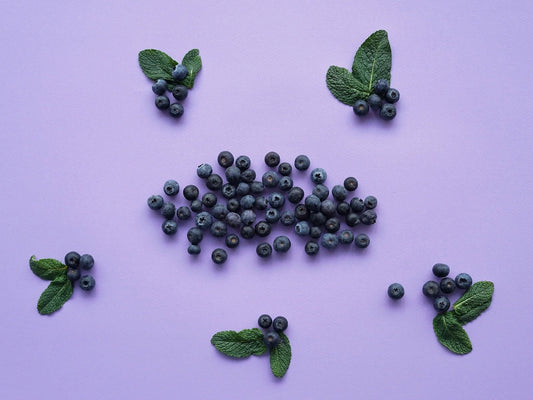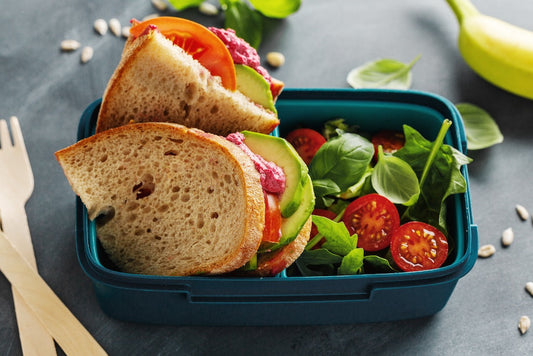Whether it's in the morning, after lunch, or as an energy boost during an afternoon break, coffee is an integral part of many of our daily routines. The caffeine in coffee provides us with the energy we need to get through the day. But have you ever considered that there is a healthier alternative? Matcha, a powdered green tea, offers a refreshing way to boost your caffeine intake without the drawbacks of coffee. In this blog post, we will explore why matcha caffeine is a great alternative to coffee and how you can incorporate it into your daily routine.
Want to start the day healthy? Discover all the Verival porridges here
The matcha trend
Matcha, also known as “green gold”, has become a real trend drink in recent years. But matcha is not just a passing fad; its popularity is justified by its numerous health benefits. Unlike coffee, matcha is not made by brewing the leaves, but by grinding the whole tea leaves into a fine powder. This means that when you consume matcha, you get the whole leaf and all of its nutrients, making it a healthier alternative.
The history of matcha
Matcha has a rich history dating back to the 8th century in China before it came to Japan. There, matcha became an integral part of the tea ceremony and Japanese culture. While tea is prepared from loose leaves in China, matcha stands out due to its unique preparation and presentation.
How is matcha made?
The production of matcha is a laborious process. First, several weeks before harvest, the tea plants are shaded to slow the growth of the leaves and increase the production of chlorophyll and amino acids. This gives the matcha its vibrant green color and characteristic flavor. After harvesting, the leaves are steamed and dried before being ground into a fine powder.
Matcha vs. coffee: the battle
Caffeine content
The most obvious difference between matcha and coffee is the caffeine content. Matcha actually contains more caffeine per gram than coffee. At first glance, this may come as a surprise, since coffee is known for its stimulating effect. However, it is important to note that the breakdown of caffeine in the body is different. Coffee provides a quick energy kick, followed by an often abrupt crash, while matcha offers a smoother, sustained release of energy. The reason for this lies in the combination of caffeine and L-theanine in matcha.
L-theanine and its effect
Matcha also contains L-theanine, a unique amino acid found naturally in tea leaves. L-theanine is known for its calming effect on the nervous system without causing drowsiness. The combination of caffeine and L-theanine in matcha provides a gentle, steady release of energy that lasts throughout the day. This leaves you feeling alert and focused, without the jittery side effects that coffee sometimes brings.
Antioxidants
Matcha is also an excellent source of antioxidants, particularly EGCG (epigallocatechin gallate), which is found in large quantities in green tea. These antioxidants help to protect the body against free radicals and have been shown to have positive health effects. Studies have shown that EGCG may have anti-inflammatory and anti-cancer properties, making matcha a valuable addition to a healthy diet.
Aids digestion
Coffee can cause digestive issues for some people, such as heartburn and stomach irritation. Matcha, on the other hand, is gentler on the stomach and can even aid digestion. The dietary fiber contained in Matcha can help regulate the bowels and reduce bloating. In addition, Matcha can help boost the metabolism, which can aid in weight control.
Matcha in detail
Matcha and brain function
The combination of caffeine and L-theanine in matcha can have a positive effect on brain function. While caffeine increases alertness, L-theanine helps to reduce stress and increase concentration. This makes matcha an ideal choice for meeting mental challenges, whether at work or while studying. Matcha is therefore considered a true superfood!
Matcha and heart health
Various studies have suggested that matcha can have a positive effect on heart health. The antioxidants in matcha help lower cholesterol levels, which can reduce the risk of heart disease. In addition, the catechins in matcha can help stabilize blood pressure.
Matcha and weight management
If you are looking for a healthy way to manage your weight, matcha could be the answer. Matcha increases metabolism and promotes fat burning. The combination of caffeine and EGCG helps to put the body in fat-burning mode. However, it is important to note that matcha alone cannot work miracles; a balanced diet and regular exercise are also important.
Matcha and skin
The antioxidants in matcha can also support skin health. They help protect the skin from environmental damage and reduce blemishes and redness. Many skin care products now contain matcha extract due to its positive effects on the skin.
Incorporate matcha into your daily routine
There are many ways to incorporate matcha into your daily routine. Here are some ideas:
- Matcha latte: mix matcha with frothed milk and a little sweetener for a delicious matcha latte.
- Matcha smoothie: add matcha to your favorite smoothie for a healthy energy boost.
- Ice cream: You can even make matcha ice cream or sorbet to keep cool on hot days.
- Porridge: We at Verival have the perfect mix of porridge with oats and the green gold from Japan. This way you can combine breakfast with the health benefits of matcha and start the day full of energy.
Matcha porridge from Verival, buy it here.
Conclusion
Matcha is undoubtedly a healthy and tasty alternative to coffee. With its high caffeine content, rich antioxidants and digestive benefits, matcha offers numerous advantages without the disadvantages of coffee. The gentle, lasting energy that matcha offers is particularly noteworthy and can be beneficial in many aspects of your life.
Breakfast without added sugar from Verival discover here
If you are tired of coffee and are looking for an alternative that will give you energy without overwhelming you, you should definitely give matcha a try. Matcha takes a little practice to prepare, but the health benefits and delicious taste make it worthwhile. Give it a try and you might just fall in love with this green elixir that helps you start the day with energy and a sense of well-being. Whether you're a health-conscious person, a tea lover or just looking for a tasty alternative to coffee, matcha has something for everyone.
Matcha Porridge Basic Recipe
Course: Breakfast
Ingredients
- 50 grams of Verival Matcha Porridge Mix
- 110-120 milliliters of water/milk/plant-based drink
- Optional: toppings such as banana or strawberries go perfectly with the bitter taste of matcha.
Preparation
- Pour 50 g of the basic mixture (6 tablespoons) into a bowl with approx. 110 ml (depending on the desired thickness) of hot milk or a plant-based drink alternative.
- Stir the Matcha porridge and let it steep for 3 minutes.
- Enjoy warm and refine with toppings such as strawberries or bananas.
Frequently asked questions
What is Matcha good for?
Matcha is good for energy and focus due to its high caffeine content combined with L-theanine, an amino acid that has a calming effect. Matcha is also rich in antioxidants that promote good health.
Is matcha really healthy?
Matcha is considered healthy because it is rich in antioxidants, especially EGCG, which protects against free radicals. It supports heart health, promotes concentration and can boost the metabolism.
How much matcha a day is healthy?
A moderate amount of about 1-2 teaspoons of matcha per day is considered healthy to reap its benefits without exceeding caffeine consumption.
Can you lose weight with matcha?
Matcha can help you lose weight because it speeds up your metabolism and promotes fat burning, especially when combined with a balanced diet and exercise.
What is matcha?
Matcha is a special powdered green tea made from the tender leaves of the tea plant Camellia sinensis.
What does matcha taste like?
Matcha has a unique flavor that is described as earthy, slightly sweet, and full-bodied. It also has a delicate bitterness.
What is matcha powder?
Matcha powder is the finely ground green tea leaves used to prepare matcha beverages.
What is the difference between matcha and green tea?
The main difference between matcha and green tea is the preparation. Matcha is consumed as a powder, while green tea is brewed in leaf form. Matcha also contains more concentrated nutrients.
Where does matcha come from?
Matcha originated in Japan, where it has a long tradition and history, especially in the tea ceremony.
Does matcha have a calming effect?
Yes, matcha has a calming effect due to the L-theanine it contains, which reduces stress without causing drowsiness.
Which contains more caffeine: matcha or coffee?
Matcha contains more caffeine per gram than coffee, but the effect is gentler and longer lasting. The L-theanine in matcha provides balanced energy without the jitters associated with coffee.
























